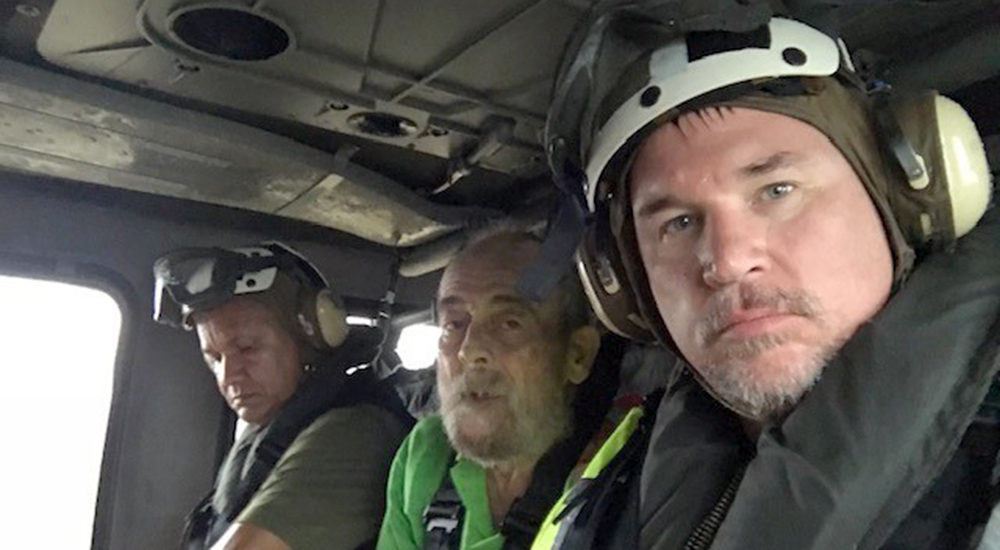After disaster strikes, the level of unknowns can bring challenges to those who follow sound emergency management principles.
Marine Corps Veteran Donald Germann knows this first hand, as he faced 180 to 190 mph winds on the island of Vieques, about 10 miles east of Puerto Rico during Hurricane Maria.
The Vietnam Veteran survived the storm alone in his home but was having chronic medical issues that needed immediate care. His condition alerted local authorities who in turn reached out to VA for assistance.
As with all large-scale incidents, an interagency Joint Field Office (JFO) in San Juan helped direct resources to assist those with the most pressing needs.
Two missions combined to deliver meds, evacuate Veteran
The JFO serves as interagency bureau where multiple federal, state, local and non-governmental agencies come together to report and gather information, resources and reconcile operational plans to recover from disaster.
The need to resupply Veterans living on Vieques with prescriptions was identified and mission planning to deliver those meds was underway.
Then another call came in from Vieques VA Clinic staff about Veteran Germann, who was low on supplies, out of power and in need of assistance. As more information about Germann and his condition became available, VA staff and other federal partners jumped into action to help him.
Tim Turner, a liaison officer for VA’s Office of Emergency Management (OEM), worked with partners in the JFO to secure a US Navy UH-60 stationed nearby on the USS Eisenhower.
This unlocked an opportunity for VA OEM Emergency Manager Curt Bratcher and VA Police Detective Rafael Lopez to deliver medications to the Viequest VA clinic. And at the same time, they could evaluate and evacuate Germann to the care that he needed at the San Juan VA Medical Center.
“Partnerships make a big difference.”
Pictured above (left to right), partnering with a Navy UH-60 helicopter crew, VA Police Detective Rafael Lopez, USMC Veteran Don Germann and VHA Office of Emergency Management Curt Bratcher fly to the safety of the San Juan VA Medical Center following Hurricane Maria.
“Partnerships that are created before emergency events make a big difference for the quality of outcomes during response and recovery,” Brachter said. This is true particularly during large scale events, such as devastating hurricanes and wildfires.
Germann’s experience and the VA staff that helped get him to the best care as quickly as possible is a story that was made possible due to VA’s partnerships with other agencies.
Response to emergencies that are smaller in scope and more localized still benefit from partnerships. This applies also to emergency management programs in place at local VA health care facilities throughout the country as well as the VA health care locations abroad.
Andrew Ruben is a communication specialist (detail) for the VA Office of Emergency Management.
Topics in this story
More Stories
Veteran Byron Potier weighed almost 300 pounds and was tired and lethargic. He was the perfect candidate for gastric sleeve surgery.
How much do you know about VA care, benefits and services? Don’t miss out on what you've earned—check out the "2025 VA Federal Benefits Guide for Veterans, Dependents, Survivors, and Caregivers" handbook to learn more.
Feeling stressed? Your breath can help you relax and focus. Take 3 minutes to reset and prioritize your well being for this week's #LiveWholeHealth practice.







What a beautiful story of helping a veteran in distress. Thank you VA and U S Navy for helping. A truly inspiring account of support.